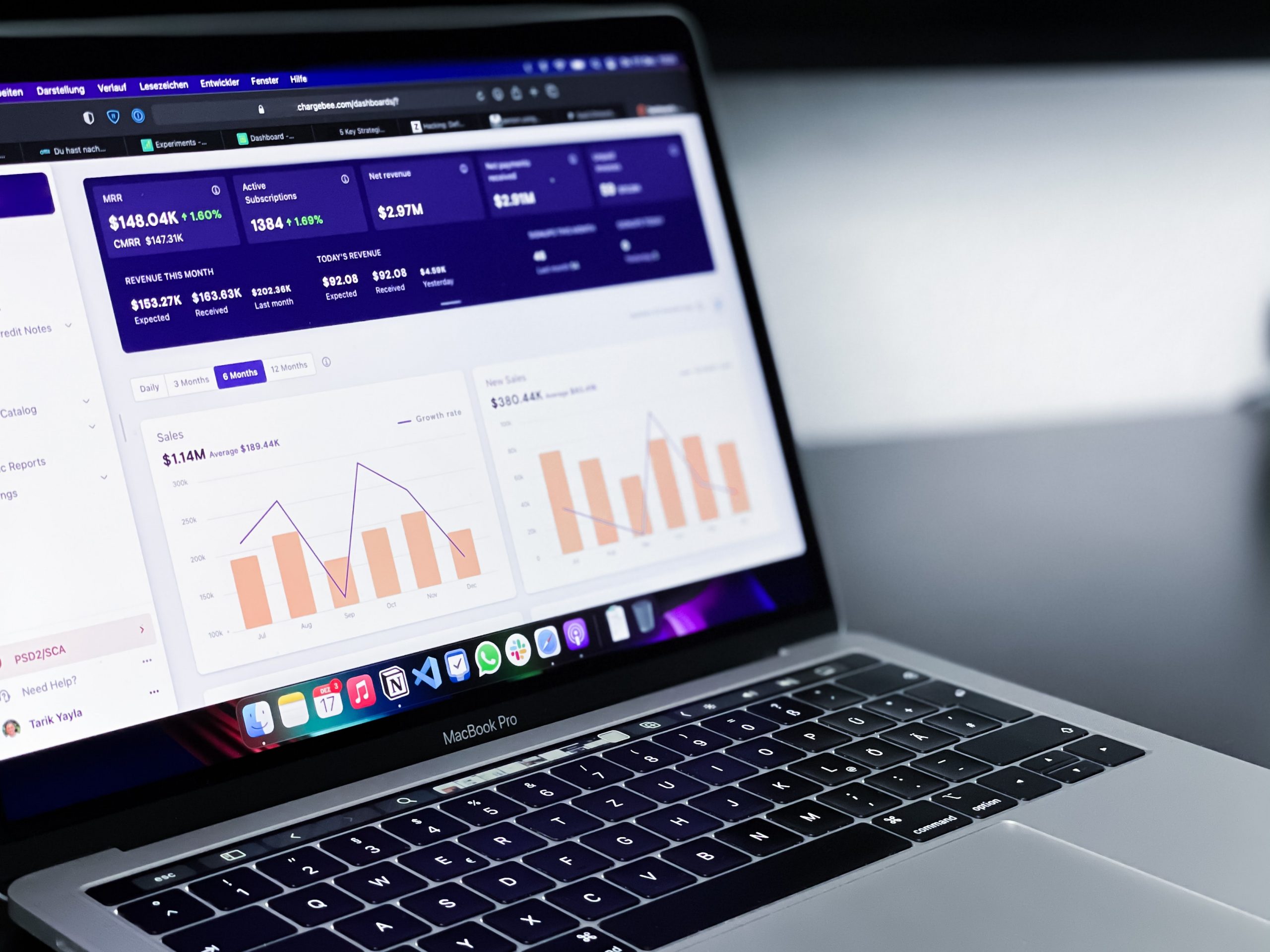
Incubeta Ignite: Analytics in Action
Last week we were thrilled to host our first event of 2021 – Incubeta Ignite: Analytics in Action. Incubeta’s new US CEO John Cawdery was joined by our UK Head of Analytics, Kate Jervis. Kate started her career in analytics working client-side and brought her experience in data strategy and analytics to DQ&A by Incubeta when she joined in 2016. With over 8 years of industry experience, Kate discussed the emerging trends forecasted for 2021, whilst exploring the importance of Privacy Centricity, and the future of a cookie-less world.
Global Changes: UK & US
The priorities surrounding analytics aren’t exactly designed in a vacuum. Analytics and measurement strategies are largely determined by external factors – of which we’ve seen plenty throughout the last year. Speaking from a UK perspective, Kate highlighted factors such as Brexit, and the repercussions of a post-Brexit world on the analytics industry noting that whilst it’s unlikely to have a significant impact akin to that which we saw with Covid, there are undoubtedly opportunities in the wider digital marketing space that will arise from it such as the opportunity to grow customer loyalty through protection of FX fluctuations, and changing conversion rates potentially benefiting tourism. In terms of analytics, however, we realistically won’t see significant post-Brexit changes as from 31st December 2020 the EU GDPR regulation has been retained by the UK Government. Although UK GDPR legislation will sit separately to EU GDPR, they will run in tandem together. All in all, Kate predicts that we’ll see the repercussions of Brexit having less of an impact than those of COVID which have been the defining factor for setting the tone for 2021.
John contributed to the discussion, focusing more on a US perspective and how the recent governmental changes will impact the year going forward. As it stands, what with the current unrest, the US is somewhat rife with uncertainty and this will only continue over the coming weeks and further into 2021. However, some certainties do exist within the country; such as the inauguration of a new president and the introduction of a new administration. John focused specifically on the change in administration, saying that it has been significantly strengthened by the recent democratic win at senate runoff elections. This is valuable as it gives the mandate for the government to make policy, and what we’ll likely see is the push towards a more federalised approach surrounding certain topics. In the past, the government has opted for state-led approaches, which proved problematic when legislation shifted between states. Having a more federalised stance will give businesses more security and stability in 2021, outlining consistency across all regions which in turn, strengthens the industry and eases logistics.
Predictions
Noting it was a hard to navigate topic given Global uncertainty for the year ahead, Kate touched upon her predictions for 2021, identifying three specific trends that she expects to surface and flourish in the coming months. Discussed in terms of how they influence what we do in digital marketing, and measurability, the trends we’ll likely see taking off are:
- The Rise of Platforms for Shopping and Shoppable Social
- The Changing Role of Physical Stores
- Getting to Know our Consumers Again
The Rise of Platforms for Shopping
No one really thought that Amazon’s dominance as the go-to site for product search could increase, however with the repercussions of an unforeseeable global pandemic coming to play, it did just that. Combining their market dominance with the rise in shoppable social or social commerce, we’re seeing substantial changes surrounding ecommerce and this, along with ad monetisation on these platforms, is only set to increase in 2021.
The Role of Physical Stores
It goes without saying that post-Covid, the roles of physical stores will have to change. Sidestepping the ‘Death of the High Street’ discussion, it is clear that physical retailers are going to have to change the way they engage with consumers. Now, more than ever society is heavily dependent on digital and moving into 2021 there is a need for physical retailers to refine and change their customer experience, overlapping their in-store strategy with digital experiences. The key question will be how businesses can create and measure a blended retail model, focusing less on digital and physical as separate entities and more on the customer journey overall.
Getting to Know our Consumers Again
An aspect of digital marketing that will be the undertone of this year is getting to know our consumers again. Over the last 12 months, digital has seen more of our behaviour than ever (think about how many conversations your Alexa has overheard versus when you used to spend most of your day in an office!) which is naturally reflected in the data we’ve collected. Besides how we shop, our personalities are coming out in new ways – lockdown has seen us pick up new hobbies, revisit a childhood love or arts, or gaming. We are seeing more of the consumer personality through data, and in 2021 we should be shedding our old myths about the audience, and starting again with fresh eyes.
—
The primary question that needs to be answered, is how, as an analyst, does one work with the upcoming changes surrounding these trends. Analysts need to be thinking about how they might work with these challenges – as they vary significantly to the challenges we experienced throughout 2020. Speaking from an analytical perspective, Kate highlighted the importance of thinking about walled gardens, and how to measure across different ecosystems. As shopping begins to blossom on platforms such as Facebook, Instagram and Amazon getting to a single source of the truth becomes increasingly difficult. Moving into 2021, we need to be thinking creatively around this – using proxy measurement or creating our own methodologies for cross-channel understanding, rather than waiting for technology to fix it all. A secondary focus should be the relationship between online and offline, in particular, the most appropriate way to measure the physical to digital, digital to physical relationship.
2021 Strategies
When considering analytics strategies for this year, Kate emphasized that there are a couple of approaches to take, Putting aside granular business-specific objectives, most businesses main priority is to grow. Going into 2021 we need to be aware that we’re not currently in a position of economic strength within this country, and going off of IPA’s latest report, businesses should try not to limit or reduce their marketing investments where possible. Comparing data from previous recessions/periods of instability the IPA identified how cutting marketing investment weakens brands in near-term and limits growth long term, and so rather than erratic decreases or increases to, we should try to focus on consistency This isn’t without its limitations; our previous focus on granular attribution and measurability over the years has skewed our perception of the long tail impacts of marketing with overemphasis on the immediate ROI of spend. Instead we should look at using attribution to understand spend efficiency – and how we can use our attribution data to achieve that.
Test and learn should also play an integral part in spend efficiency If Covid has highlighted anything, it’s the speed at which our data decays. Rather than historical data, businesses can use test and learn strategies to underpin analysis around marketing effectiveness all made easier the accessibility of measurement tech such as Cloud platforms.
Measurement in a Cookie-less Era
The crumbling of the cookie is by no means a surprise to anyone in the industry, and as Kate discusses, we’ve known for a long time that the cookie was eventually going to die. Whilst she can understand the industry’s frustration, she tries to focus on the positives – that this is an opportunity to change our approach, rather than trying to replicate data of the past. Kate notes that Google’s release of GA4, an example of a changed approach, is ultimately a formal response to the new privacy regulations. GA4 is moving us away from session based measurement, and towards event based measurement, decreasing our reliance on the cookie and addressing some of the data gaps we might have started to see when looking at cookie based tracking.
One of the interesting things to note is Google is allowing us to get onboard with this foundation now – even though the product (GA4) is still being built upon. This gives us the opportunity to start early adoption so we can educate our businesses around this change in methodology. Whilst the temptation to onboard at the last possible moment is prevalent, advertisers should take advantage of the opportunity Google have provided, in order to collect as much historical data possible, to make the tech more worthwhile in the longer term
John built upon this topic, discussing how – in reference to US businesses – we’ve seen a year like none other before. 2020 saw a generational shift towards digital, which shone a spotlight on the aspects and investment of measurement. Expanding on this, John discussed how measurement should be considered as a journey rather than a destination. We see the ongoing investments in new technologies, and advertisers can’t afford to panic – they need to recognise that, whilst technology is constantly evolving, it is there to help them in the long run. 2021 is the year to balance strategy and meet the new consumer behaviours. Advertisers should be identifying with and building an understanding of their customers, making commercial investments to future proof their business.
Privacy
A good way to start the discussion around privacy is to emphasise how it is ultimately driven by consumers. Taking a look at the marketing landscape pre-cookie degeneration, digital advertising grew at an astronomical rate, and the law couldn’t keep up. With this we saw an increase in consumer education on the topic of data protection and privacy, and questions began to be raised concerning data regulations, and how consumer data was being handled. 10 years ago using the internet was a large enough value exchange for consumers to share their personal data, however, as we enter 2021 this value exchange has expired and consumers no longer view internet access as a substantial reason to part with their personal information. Kate elaborated on this saying, as marketers we should be identifying a new value proposition that is compelling enough to convince consumers to hand over their data.
Privacy shouldn’t be considered solely as a law that we have to abide by, it is also a valuable insight into the minds of our consumers. Although challenging, businesses should see the opportunities that these regulatory privacy changes can have, and capitalize on that. Whilst we may be losing oversight of consumers via third party tracking, we now have an opportunity to build-out and optimize our first party data. Moving into 2021 we should be expanding on existing first party data avenues, identifying how we can maximise the return. On top of this, Kate stressed the importance of viewing consumers as people not cookies – businesses should be approaching the situation from a consumer-first angle, rather than data-first.
Whilst the solution to tackling new privacy regulations and a cookie-less world lies in customer engagement optimization, it’s also important to consider creativity on the measurement side. Gone are the days of pursuing complete accuracy, and while a bitter pill to swallow, advertisers need to accept that we are never going to be able to replicate the capabilities of cookies, and there is no technical workaround that will allow that to happen. As marketers, we need to move away from precision focus and work on predictive analytics – asking ourselves where the gaps are and finding ways to fill them where appropriate. We’re never going to get anywhere close to what we had, but technologies such as Google’s Ads Data Hub can help us fill some of the gaps in a legally compliant environment. Building out activation without owning the data. We need to look forward and embrace the departure, reassessing our visions and working out, not how we used to have data, but whether we actually need it.
Investing in Analytics
Analytics can very much be viewed as a short term pain, long term gain type of perspective. Kate expanded on this saying that, in 2021 businesses are just going to have to bite the bullet and make certain investments. There are specific tools that are needed, certain new technologies to embrace and going forward, advertisers need to be dedicating investment in such technologies that will ultimately secure their future growth. The notion of linking everything to a ROAS, is a self-inflicted issue that hampers our ability to justify investments without supporting ROI – marketers need to recognise this, and think long term rather than from an immediate gratification stance.
John contributed to the topic, discussing how businesses need to think of these investments as a digital maturity journey that will set them up for success. A long term gain that will make them a more trusted business that resonates with, and connects them to customers – a kind of “Digital Responsibility”. Whilst we’re seeing technology spring ahead, legislation is catching up and forcing everyone to comply to the very basics. This, in turn, shows businesses the value of certain investments further down the line. Adopt now for future growth. Kate expanded on this in terms of customer retention and education. Over the last year we’ve seen drastic shifts in consumer awareness with customers choosing smaller, more integrous brands with clear values over larger corporations with less integrity. Moving into 2021, businesses should evolve, opening their eyes to the value of generating a resoundingly positive consumer response to their brand, and implementing this within their investments.
Quickfire Audience Questions:
1: What are the key skills to focus on developing for the analytics industry in 2021?
Kate highlighted three main skills to focus on:
- Employ a Data scientist: get someone in your business who’s going to do something with your data, and help you understand it
- Education: employ someone whose going to help educate the business, specifically someone who can educate the C-Suite
- Refine Testing skills: employ people who are able to look at data, take action on it and not report for reportings sake
John highlighted three main skills to focus on:
- Understand the evolution of precision to prediction
- Harness the power of context
- Keeping on top of legislation and technologies as a business. Digital Responsibility as a company.
2: What are the top 3 analytics priorities for 2021?
John’s top three priorities were:
- Keeping on top of new technologies: we should always be thinking about understanding new technologies and the way in which they impact our business
- Understanding and using contextual advertising
- Investment in measurement
Kate’s top three priorities were:
- Moving away from analytics being seen just as performance metrics, and finding a way to reframe.
- New Technologies: understanding the importance of jumping on them sooner rather than later and getting tools under our belt now that might be useful later down the road
- Understanding what tracking businesses can get on site to protect themselves for the future 3:
What is the top thing marketers need to do in 2021 to prepare for the loss of 3rd party cookies?
From Kate’s perspective, the top thing marketers need to do to prepare for the loss of 3rd party cookies is to assess the data gap quickly. Taking a step back, and analysing what they can no longer answer – not, how can I replicate what I had before. Businesses should be focusing on filling in the gaps rather than attempting to replicate what was lost.
From John’s perspective, the top thing marketers need to do to prepare for the loss of 3rd party cookies is to think about forward movement. The landscape has changed but technology is improving. Businesses should try to capitalize on the best of what’s available and execute accordingly.
To watch the full discussion with Kate and John, register at Incubeta Ignite: Analytics in Action to access the recording.
Browse: Industry Insight / Work & Awards
Read Next
Find out how we can help you
With offices around the world, we can build a team perfect for your needs.

